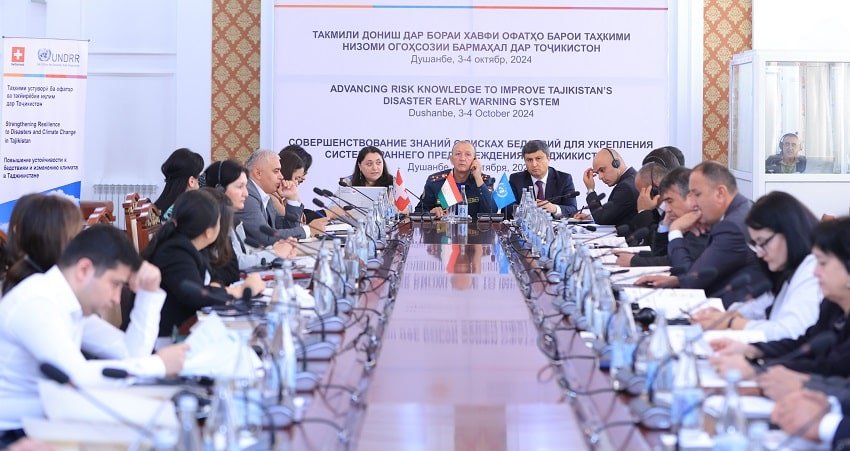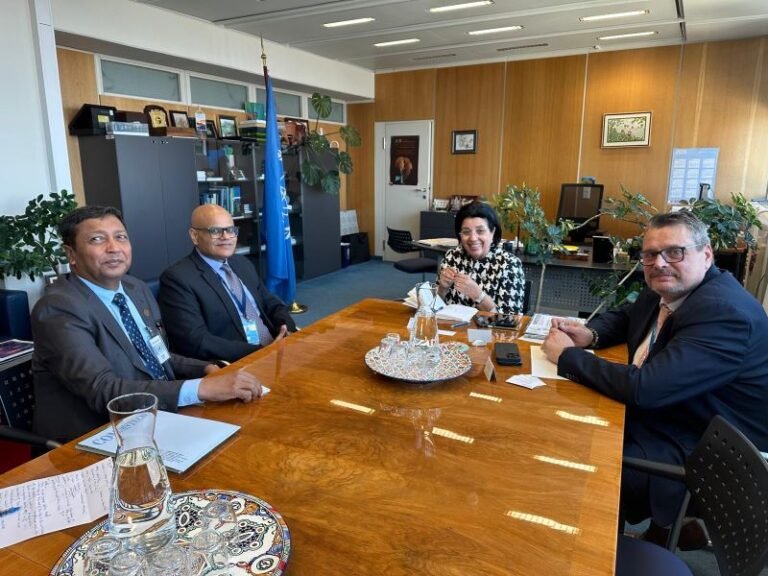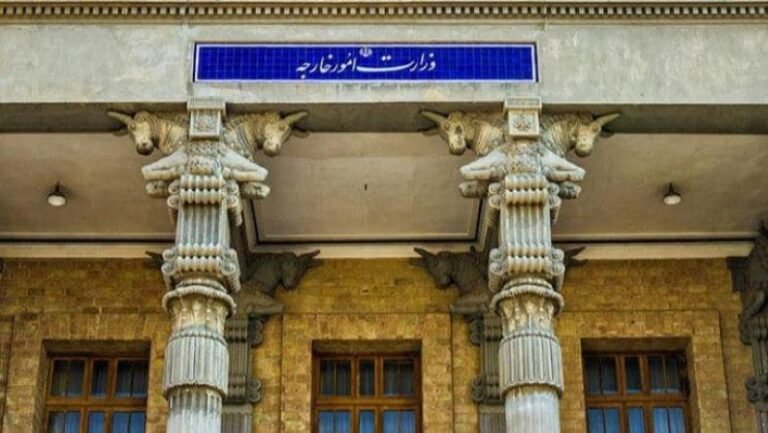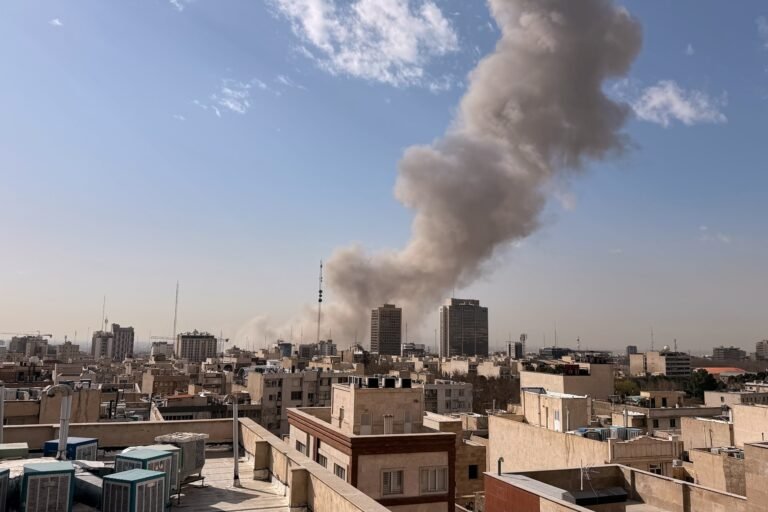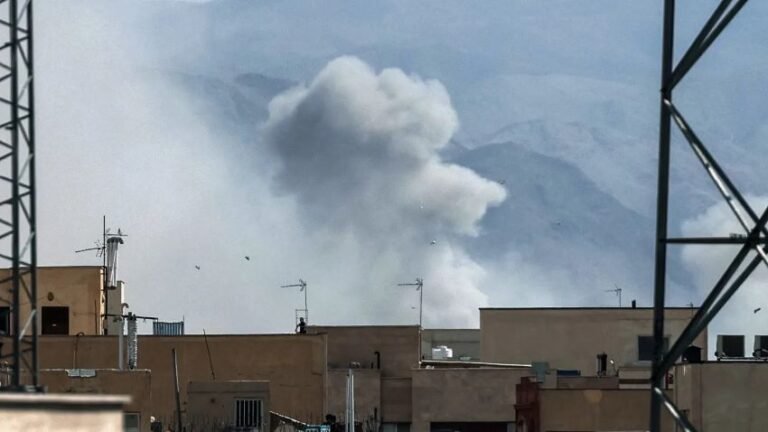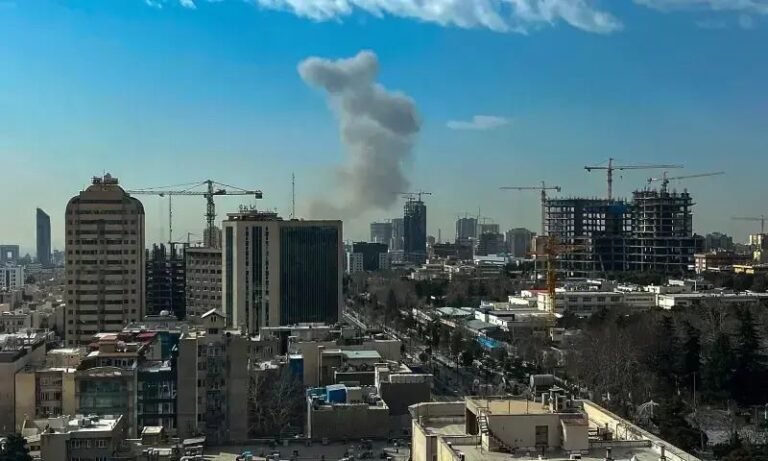Dushanbe (TDI): Tajikistan is enhancing disaster preparedness through an international workshop focused on improving early warning systems.
The event, titled “Advancing Risk Knowledge to Improve Tajikistan’s Disaster Early Warning System,” was held as part of the “Strengthening Resilience to Disasters and Climate Change in Tajikistan” project, a joint initiative between the UN Office for Disaster Risk Reduction (UNDRR) and the government of Switzerland.
The workshop aligns with the global initiative Early Warnings for All (EW4All) and aims to enhance the nation’s capacity to predict and mitigate disaster risks.
Led by the Tajik government, the workshop brought together key international partners, including UNDP, OCHA, CIMA Research Foundation, and Microsoft.
Tajikistan, one of Central Asia’s most disaster-prone countries, has faced over 4,000 natural disasters in recent decades, resulting in approximately $500 million in damages.
Consequently, improving early warning systems (EWS) has become crucial for safeguarding lives and minimizing damage from future calamities.
Participants emphasized the importance of enhancing risk knowledge, which is vital for identifying the populations most vulnerable to natural hazards such as floods and earthquakes.
By assessing the likelihood and potential impacts of these risks, experts can tailor warnings to protect the most at-risk communities.
Also Read: Tajikistan, EU Discuss Expanding Middle Corridor
Timely and effective alerts are essential for reaching those who need them most.
Globally, early warning systems have been effective in saving lives and reducing damage, yet gaps persist, with one in three individuals still lacking adequate protection.
The EW4All initiative seeks to bridge these gaps by 2027, ensuring that everyone has access to an operational early warning system.
National Workshop
In August 2023, a national workshop identified weaknesses in Tajikistan’s early warning system, leading to the development of a comprehensive roadmap, officially endorsed in July 2024.
This roadmap outlines critical steps to bolster the country’s early warning capabilities.
At the Dushanbe workshop, participants reviewed current approaches, engaged in training sessions, and explored new technologies, including Microsoft’s AI-powered exposure mapping tools.
Also Read: Tajikistan, Iran Agree to Strengthen Cooperation
These advancements will enable Tajikistan to better monitor hazards, assess risks, and deliver life-saving alerts.
This workshop marks a pivotal step toward a safer, more resilient future for Tajikistan, ensuring that communities are prepared to face the growing threats posed by natural disasters.
Farkhund Yousafzai is an Associate Editor at The Diplomatic Insight.
- Farkhund Yousafzai
- Farkhund Yousafzai
- Farkhund Yousafzai

